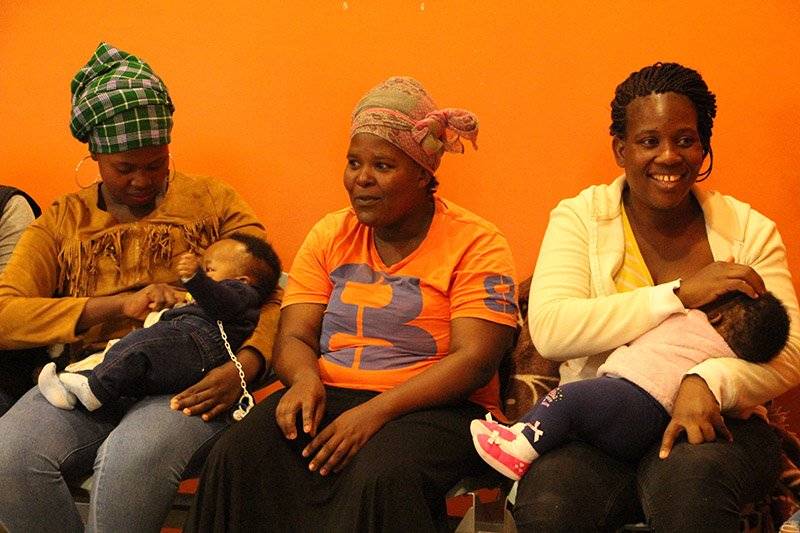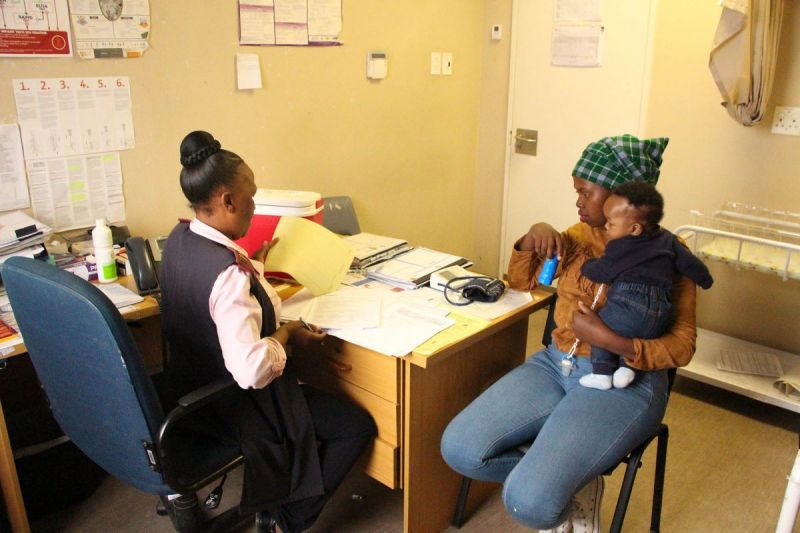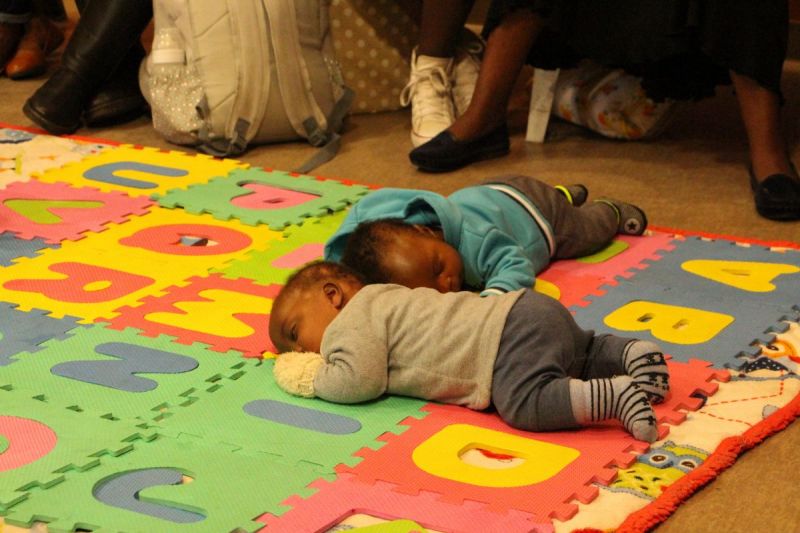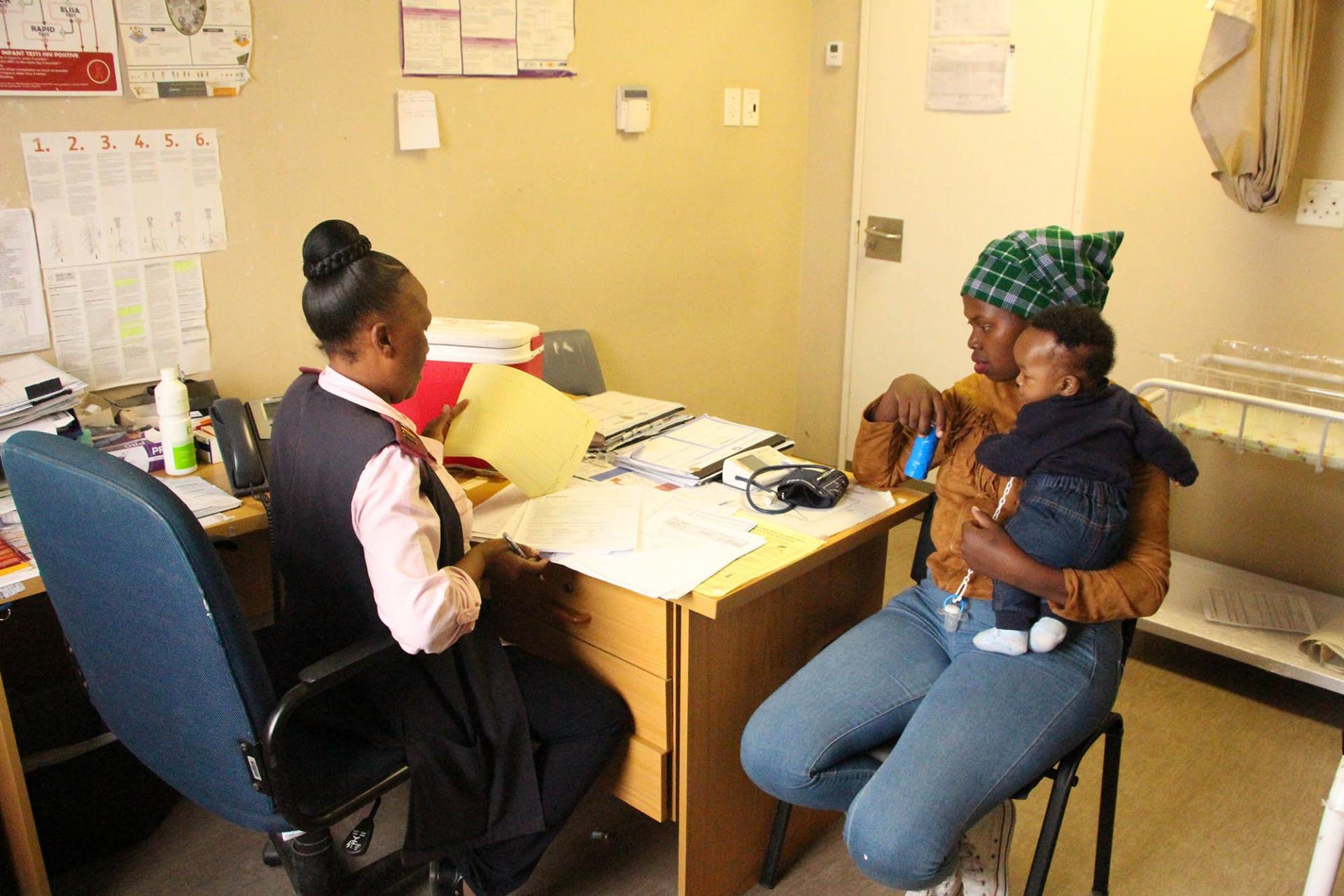Khayelitsha, South Africa- Today at the 2018 International Aids Society Conference, Doctors Without Borders (MSF) will present results from an integrated health care program for HIV-positive mothers and their uninfected infants in Khayelitsha, South Africa, showing that these “Postnatal Clubs” (PNC) are more successful than the current standard approach at providing mother and infant pairs with the healthcare they need in the first 18 months.
The PNC approach was piloted in a partnership with mothers2mothers (m2m) and the City of Cape Town. Today’s release also includes an online toolkit for others to use or build upon the approach.
“It is really encouraging that 82% of moms and tots have been retained in care at 18 months, considering that the retention rate in standard care is 34%. Furthermore, at 18 months not a single one of over 100 infants who completed the pilot program had been infected with HIV, whereas in standard care an estimated 4.3% of infants born to HIV positive mothers are infected at the same stage,” says Dr. Aurelie Nelson, an HIV doctor with MSF in Khayelitsha.
PNCs also recorded higher infant testing rates for HIV (94%, as compared to 33% in standard care) and excellent viral suppression rates among mothers (96%), while proving extremely popular with participants, according to a qualitative study among mothers conducted in 2017.

Through its antiretroviral programs South Africa has done much to tackle the rate of mother-to-child transmission (MTCT) of HIV in the first ten weeks after birth, reducing transmission from 25-30% before 2001 to around 1.4% currently, but this major achievement is marred by the significant transmission that still occurs between 10 and 18 months, estimated at 4.3%.
The climbing rate of postnatal MTCT is thought to be partially attributable to poor retention of mothers and infants in care after birth, meaning that mothers stop taking their treatment, which increases the risk of HIV transmission through breastfeeding as the virus once again rises to detectable levels in their blood.
Reasons for low retention are thought to include arduous clinic waiting times and onerous travel costs to reach care, mothers not disclosing their HIV status to people close to them, a lack of partner involvement, and more.

“A key component of PNCs is the strong peer support component offered by “Mentor Mothers” – HIV-positive mothers employed by m2m.
Another key element is that the PNC is a one-stop shop, providing integrated maternal and child health and HIV services with components of early childhood development in a single friendly environment.
This spares mothers from having to queue in different lines for themselves and their babies, and from having to travel to clinic on differing days,” notes Dr. Kathrin Schmitz, Programs and Technical Support Director for mothers2mothers (m2m), which provides the mentorship component of PNCs.
The third partner in PNCs is City of Cape Town Health, where the intervention is taking place in Town Two Clinic with the support and collaboration of their staff.

“In a country in which approximately one in three pregnant women presenting at public health facilities is infected with HIV, integrated services for moms and tots is vital. It ensures mother gets the healthcare and support she needs postpartum, and baby receives the correct treatment and follow-ups in the first 1000 days of life, the period in which the foundations of optimum health, growth, and neurodevelopment across a human lifespan are established,” says Schmitz.
In Khayelitsha, the clubs will soon be offered at a second public health facility, and MSF and m2m are calling for national uptake of the model, and for PNCs to be adopted in other countries with high rates of postnatal mother to child transmission, as the model can be easily adapted to different contexts.
Note: MSF, m2m and the City of Cape Town have launched a new online toolkit on how to implement Postnatal Clubs.
For further information please contact Sean Christie on 073 215 5342
Find out more about PNCs here.
Find out more about MSF's work in South Africa.
